Kate Demolder sits down with intimacy coordinator Ita O'Brien to discuss erotic thrillers, blind eyes, modesty garments, and the state of desire post #MeToo.
While generalising about millions of people is difficult, a series of studies in recent years have denoted that we are all, nearly eight billion of us, having less sex––at home, in public, and on television.
It's an understanding that’s been considered for some time, even before research was conducted. In a 2021 interview with Variety, Paul Verhoeven, the 83-year-old director of sexually explicit classics like Basic Instinct (1992) diagnosed a "general shift towards Puritanism" in the film industry, not to mention in the culture at large. (If this is the case, Verhoeven is surely not to blame; his latest film, Benedetta, about seventeenth-century lesbian nuns, was hailed by the Guardian as full of 'softcore nakedness and stages some raunchy lovemaking scenes’.)
Echoing this is John Cameron Mitchell, whose 2006 movie Shortbus reveled in depictions of unsimulated sex, recently decrying ‘a certain sex panic in the air’. In Playboy, too, writer Kate Hagen reported that the percentage of feature-length films depicting sex has hit a low not seen since the 1960s.
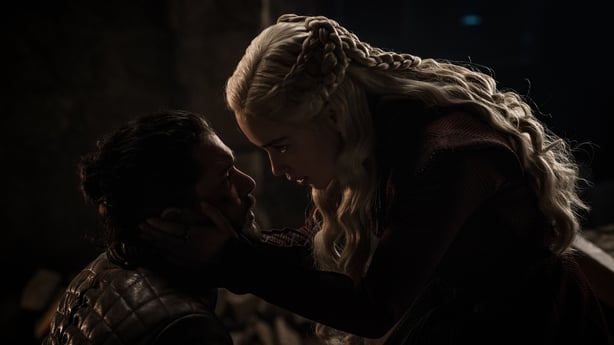
It's the great paradox of our time: that we live in a time of sexual plenty, yet statistics show we’re not getting (or, seeing) any. The reasons for this are tenfold (COVID, systemic and infrastructural loneliness, an understanding of asexuality, a greater understanding of sexual deviance, etc) but, too, critics have shared their beliefs that where once sex used to be characterised by its spontaneity and excitement, the younger generation now takes a more detached, procedural view.
We have, too, come to live in an over-sexualised society; a phenomenon that has dramatically accelerated over recent years. The prominence of internet porn has made sex of everything, and television shows like Naked Attraction, and Naked And Afraid, mean sexualised imagery is omnipresent and thus lacking in stimulation.
To this, many argue, we have become numb––something that isn’t being taken very seriously nor given proper credence. We have also gained from the benefit of information that sex scenes don’t really have the best track record: Maria Schneider was infamously "humiliated" by Marlon Brando and Bernardo Bertolucci while filming Last Tango in Paris; Salma Hayek claimed that she was pressured to perform a nude scene in Frida; and, recently, Emilia Clarke has spoken about feeling terrified while filming nude scenes on Game of Thrones.

While the focus has largely been on inappropriate behaviour behind the scenes, we're also led to ask the question: what about the sex on camera? What protects actors who have very little power––and for whom simulating sex in front of it is literally part of the job?
The industry's answer is intimacy coordinators; third parties acting essentially as sex scene coaches, in hopes of safeguarding actors in roles containing nudity or simulated sex.
This means ensuring protocols are respected, such as adhering to nudity riders, which outline exactly what’s shown; having closed sets (essential crew only) to respect the actors’ privacy; and making sure there are "modesty garments" to offer some privacy, provide a barrier and cater to bodily fluids, natural or manufactured.
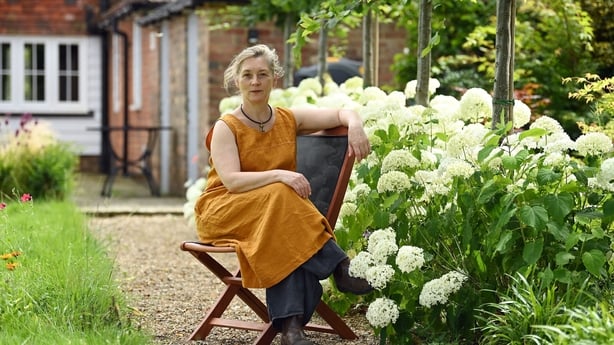
One such coordinator is Ita O’Brien, a formerly trained dancer and movement studies coach-turned-educator, whose work (Normal People, Sex Education, It’s A Sin, I May Destroy You, et al) has been praised internationally.
To her, the shift had been a tipping point. "So when #MeToo originally happened with those brave women," O’Brien shares over Zoom from Kent, "the whole narrative of the industry changed. Production companies essentially came out and said that they’d known about this for so long but were no longer willing to turn a blind eye.
"For actor safety, it was a tipping point. On the other hand, it allowed people working on film sets to view how they were treating other people, which actors are in sex scenes––and how they might have been putting them in really difficult situations without proper procedures in place.
"So within those parameters, you would get a collection of actors who would feel awkward, to harassed, to downright abused. So this is where you need really well-trained professionals both in the physical worlds of movement and body coaching as well as in the processes of impulse, body intelligence, instinct and energy. It’s a real skill that involves a huge amount of communication––like intimate scenes in real life."
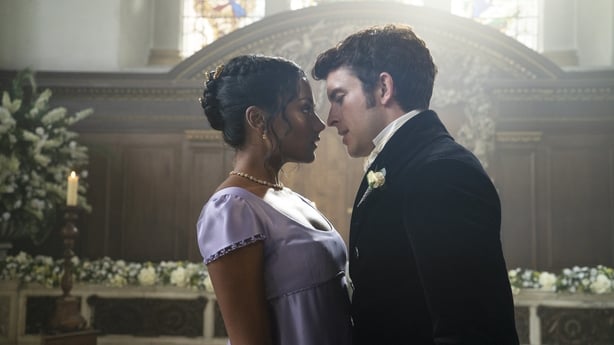
The first production to set a new industry standard and hire an intimacy coordinator was the 2017 HBO hit The Deuce, a gritty drama detailing the germination of the sex-trade industry in the heart of New York's Times Square in the early seventies.
Emily Meade, who played an aspiring porn star, made the request for a professional to be available when the second series began shooting, causing a tidal wave of intimacy coordinators to suddenly be on the job.
Through work like O’Brien’s, as well as several structural changes within the industry such as the 2017 Royal Court Theatre Day of Action setting out new codes of conduct, a marriage of employee safety as well as nuanced intimate interactions were made.
Productions with sex scenes, however, outnumber seasoned intimacy coordinators. And as for those who refuse such political correctness, insisting they prevent art, an omission is brutal and swift; when Equity adopted safe-sex scene guidelines, actor Andy Serkis accused the union of "creative censorship", suggesting actors and directors should arrive at an agreement together; and in Sam Levinson and Abel 'The Weeknd' Tesfaye’s scandalising series The Idol, the first episode sees lead Jocelyn (Lily-Rose Depp) shoot her album cover naked, as her managers lock an intimacy coordinator in the bathroom.
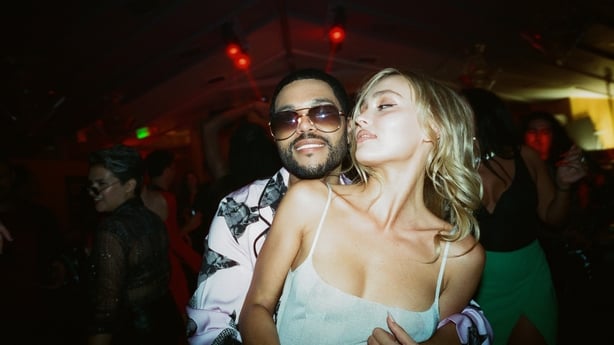
Perhaps there’s also truth in suggesting that the sex scene has merely migrated from the big screen to the small. Television shows like the shows O’Brien has worked on, not to mention Girls, Bridgerton, Euphoria and Big Mouth, have a way of making the world look like one big erogenous zone, shifting the dynamics of power, pleasure and discovery.
"To be a successful practitioner," O’Brien shares, "you need to know how to interrogate the script, process and journey of the content as to embody what is needed or wanted. It’s a process that’s incredibly skilled and nuanced that’s currently lacking in regulation, meaning that there are intimacy coordinators out there who say they’re fully trained, sometimes with me if they’ve sat in on a Zoom call with me, who haven’t got accreditation in the least.
"Accreditation involves a really robust and clear structure that allows for creativity and inspiration while also curating intimate scenes to a healthy standard. Fundamentally, both in my work and the work that’s being done within the industry at large, it’s about working with respect for everyone on set. Meaning that just because the producer holds the purse strings, doesn’t mean they can invite someone to their room for a massage."
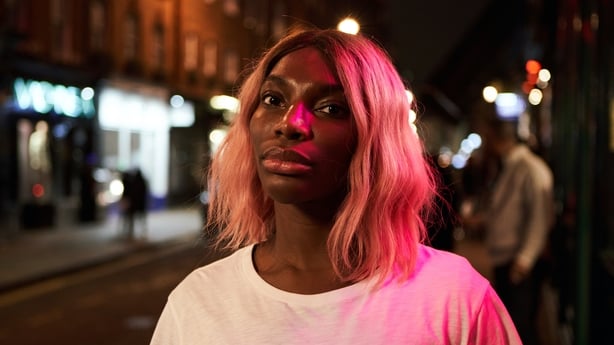
The narrative that intimacy onset guidelines bring, O’Brien continues passionately, is based around epic communication, transparency, putting in place a process that allows for agreement and consent, and then "just understanding and treating the bodies like a dance––like a beautiful tango."
"So acknowledging that this is a physical expression, and just like any dance or whatever, you need someone skilled in the art of the body and choreography to allow it to flourish. That choreography then, allows the actors to be free, spontaneous and excited each time they perform it. The shape of the character is known, and that's the same with intimate content."
That said, it appears that among film, theatre and television, only the latter has picked up on such a role’s importance.
"The way I see it, the television industry is a lot more receptive to what I do," she smiles. "Very often on film sets you’ll have so many more people involved, whether in production or directing or wardrobe, that they don’t want anyone else coming in and interfering.
"Once I was even invited into a film set to tell them what I might suggest for their leads, and they took down every word I said, before calling me to say they no longer needed my help. The respect is just not there."
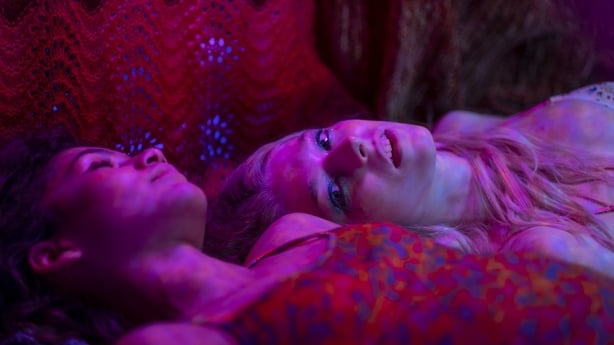
So, have reports of the 'Great Sex Scene Shift' been wildly exaggerated? And, considering that just about any kind of erotic behaviour can be viewed with a click, what do we still want from a sex scene, anyway?
While researching this piece, I grew to think that women in sexual roles on television (a trope that seems exclusively enveloped by young, white women) are taught to only think of sex on a black-and-white scale: romantic and powerful, or an instance of abuse.
Refining sex beyond the act, to make it expressive of art is a tactic employed by few directors meaning there are few examples, but Lena Dunham’s Girls, managed to unfurl character descriptions in the way their roles had sex, deeming the show so revolutionary at that time.
Following this on HBO, in a somewhat unorthodox fashion, was Succession, which had a lack of sex scenes––something that felt true to the characters, as sex is a potential conduit to revealing weakness. Perhaps the bell has tolled on the wanton sex scene.
"I think we’ve come to see better examples of consent on screen of late," sex and intimacy specialist and author Grace Alice Ó Sé tells me over Zoom. "We understand the importance of consent and communication as we see it in shows like Heartstopper, and Sex Education,––and also, crucially, how it doesn’t ruin the mood.
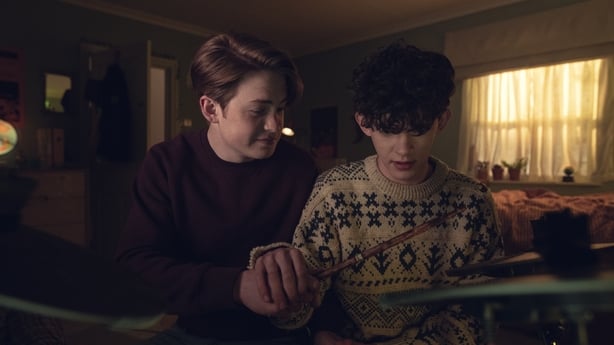
We also now understand what the male gaze is, and are in the middle of experiencing the female gaze through media. Since #MeToo, there's been such an emphasis on female pleasure, as well as a huge amount done for diversity."
"The thing is," O’Brien concludes. "The work is fundamentally good. The work that was done just after the #MeToo movement and before the lockdown shows that nothing was dumbed down or awkward––the content was elevated and really on point and detailed and told the emotional and physical story everyone wanted. When you get that result as well as all of the people on set feeling safe–––is there any more you can ask for?"
The views expressed here are those of the author and do not represent or reflect the views of RTÉ.


